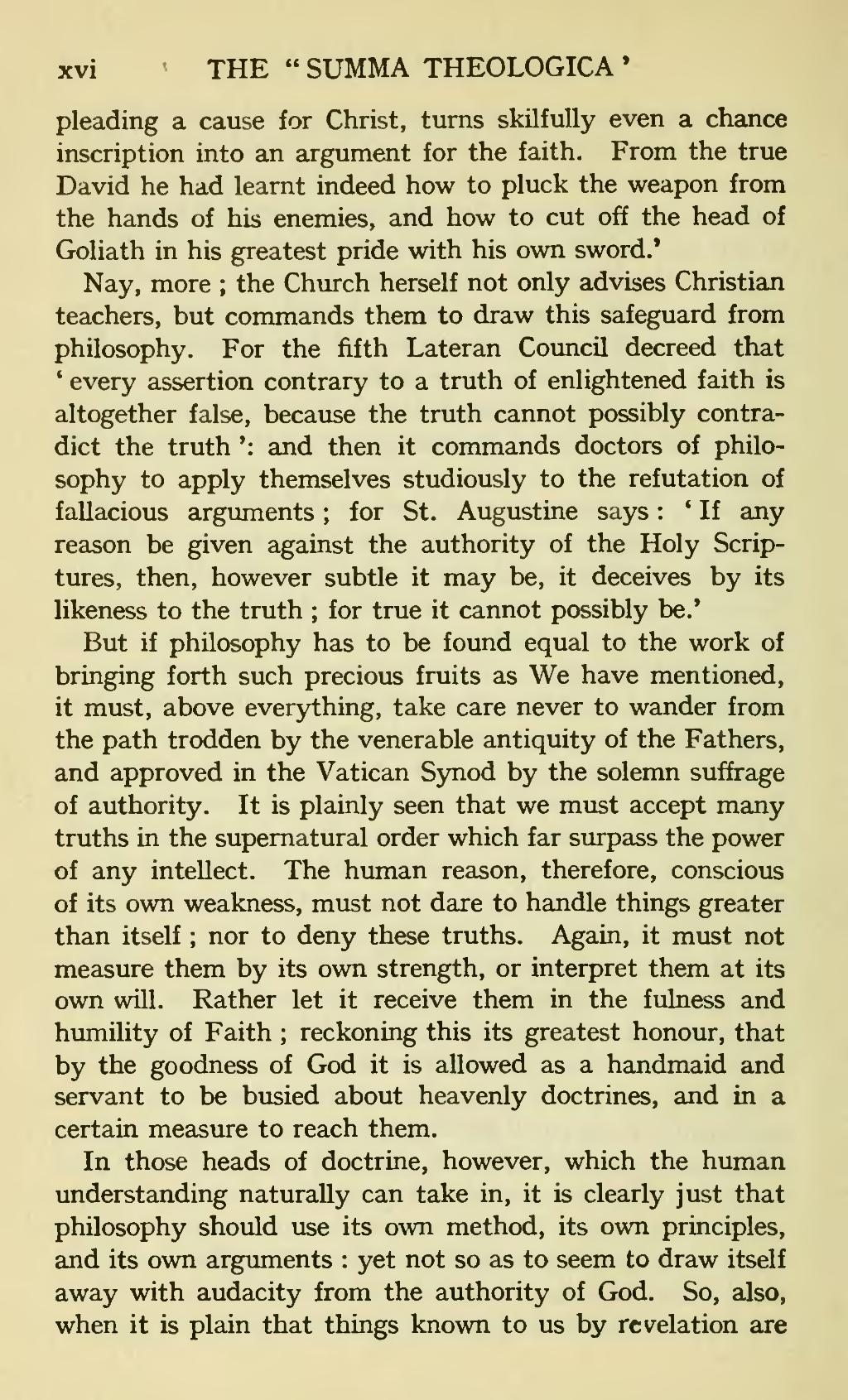pleading a cause for Christ, turns skilfully even a chance inscription into an argument for the faith. From the true David he had learnt indeed how to pluck the weapon from the hands of his enemies, and how to cut off the head of Goliath in his greatest pride with his own sword.'
Nay, more; the Church herself not only advises Christian teachers, but commands them to draw this safeguard from philosophy. For the fifth Lateran Council decreed that 'every assertion contrary to a truth of enlightened faith is altogether false, because the truth cannot possibly contradict the truth': and then it commands doctors of philosophy to apply themselves studiously to the refutation of fallacious arguments; for St. Augustine says: 'If any reason be given against the authority of the Holy Scriptures, then, however subtle it may be, it deceives by its likeness to the truth; for true it cannot possibly be.'
But if philosophy has to be found equal to the work of bringing forth such precious fruits as We have mentioned, it must, above everything, take care never to wander from the path trodden by the venerable antiquity of the Fathers, and approved in the Vatican Synod by the solemn suffrage of authority. It is plainly seen that we must accept many truths in the supernatural order which far surpass the power of any intellect. The human reason, therefore, conscious of its own weakness, must not dare to handle things greater than itself; nor to deny these truths. Again, it must not measure them by its own strength, or interpret them at its own will. Rather let it receive them in the fulness and humility of Faith; reckoning this its greatest honour, that by the goodness of God it is allowed as a handmaid and servant to be busied about heavenly doctrines, and in a certain measure to reach them.
In those heads of doctrine, however, which the human understanding naturally can take in, it is clearly just that philosophy should use its own method, its own principles, and its own arguments: yet not so as to seem to draw itself away with audacity from the authority of God. So, also, when it is plain that things known to us by revelation are
